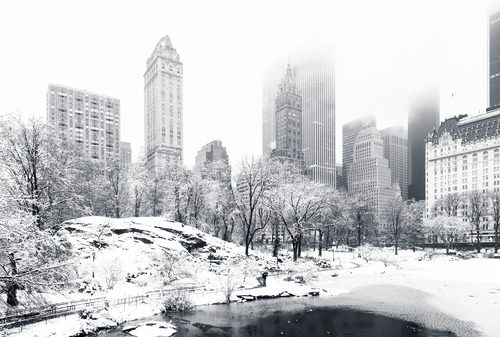NEW HEATING LAW CHANGES IN NYC*
 © Eric P. Gonchar. All rights reserved. No portion of this article may be reproduced without the expressed written permission of Eric P. Gonchar.
© Eric P. Gonchar. All rights reserved. No portion of this article may be reproduced without the expressed written permission of Eric P. Gonchar.
On October 1, 2017, a change to the NYC heating regulations will go into effect when the heating season begins. The new regulations require owners of buildings with central heating to maintain minimum temperatures in residential apartments during heating season. The new rule increases the minimum nighttime temperature in apartments to 62 degrees. During the designated heating season, October 1 through May 31, residential buildings will now have to maintain an internal temperature of no less than 62 degrees Fahrenheit during the night, from 10 P.M. to 6 A.M., instead of the current 55-degree minimum. The new law also eliminates the outdoor temperature trigger during nighttime hours, thereby requiring the indoor temperature level be maintained regardless of the outside temperature.
The new temperature minimum will no longer be contingent on how cold it gets outside. That’s a change from the old law, which states that the 55-degree minimum is triggered only when temperatures outside dip below 40 degrees. The internal minimum temperature required during daytime hours, between 6 A.M. and 10 P.M., will remain at 68 degrees.
The new Law will likely boost fuel costs and put more pressure on heating systems. The stricter heating rules probably won’t have much of an impact on higher end condos, co-ops, and other multi-unit building as these buildings generally do not ever get that cold at night. It is too soon to know definitively whether the new rules will cause fuel consumption and costs to rise.
The changes were probably aimed more toward the slumlords who wouldn’t provide adequate heat. This will be giving residents an outlet to call 311 to say the Landlord is in violation of the law.
But building owners will need to be more vigilant about preventative maintenance for boilers and related equipment to protect against outages. The increased pressure on heating systems that are not used to keeping temperatures in the 60-70 degree range will likely lead to an increase in service calls during the heating season.
The heating rules are enforced by the New York City Department of Housing Preservation and Development, which issues violation notices for non-compliance. Penalties for non-compliance can run daily from the posting date of the violation until the date it is corrected, as follows: $250-$500 per day for each initial heat violation, $500-$1,000 per day for each subsequent violation during the same and/or the next heating season. Property managers should notify the building service employees of the new requirements and that heating equipment is set to meet them.
Property owners who are not yet maintaining a 62-degree minimum at night may have to be more proactive with pricing out oil or gas and try to lock in prices. Co-ops and Condos may want to lock in prices for oil about half the time when we think the market is going to edge up.
*DISCLAIMER. Nothing herein is offered as legal advice. All information in this article is for informational purposes only. Please consult with an attorney before taking any legal actions.

